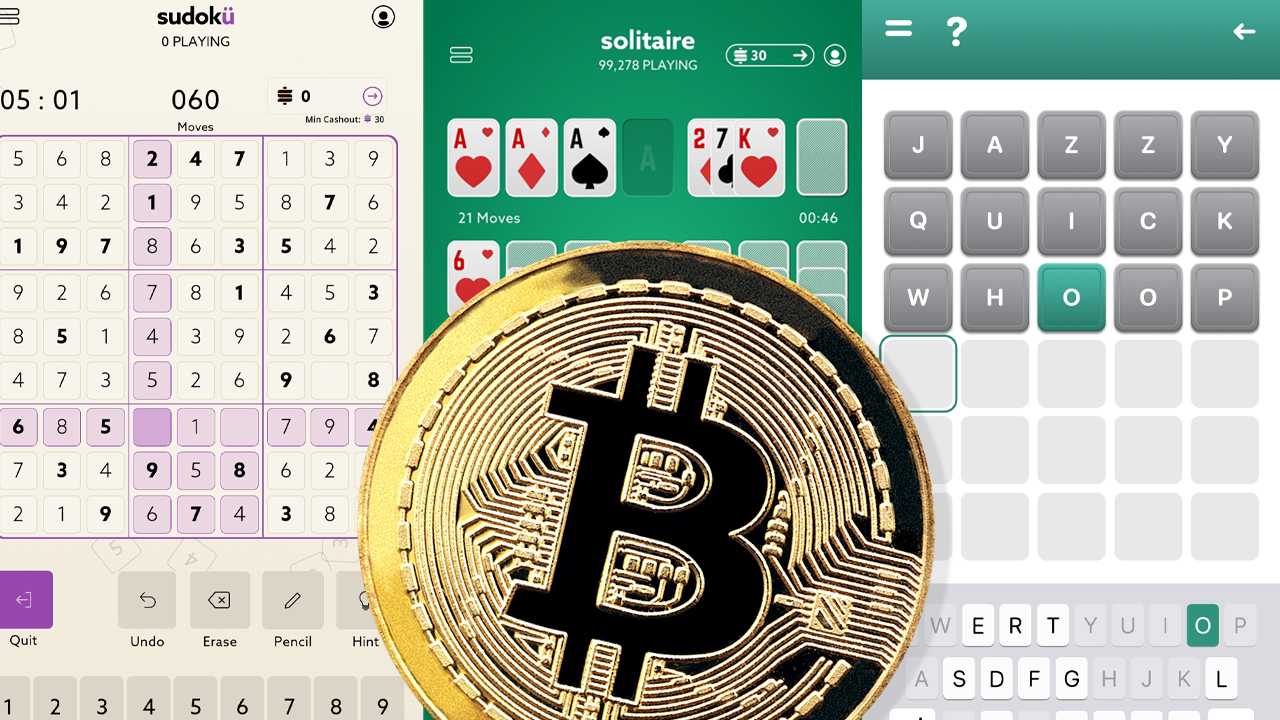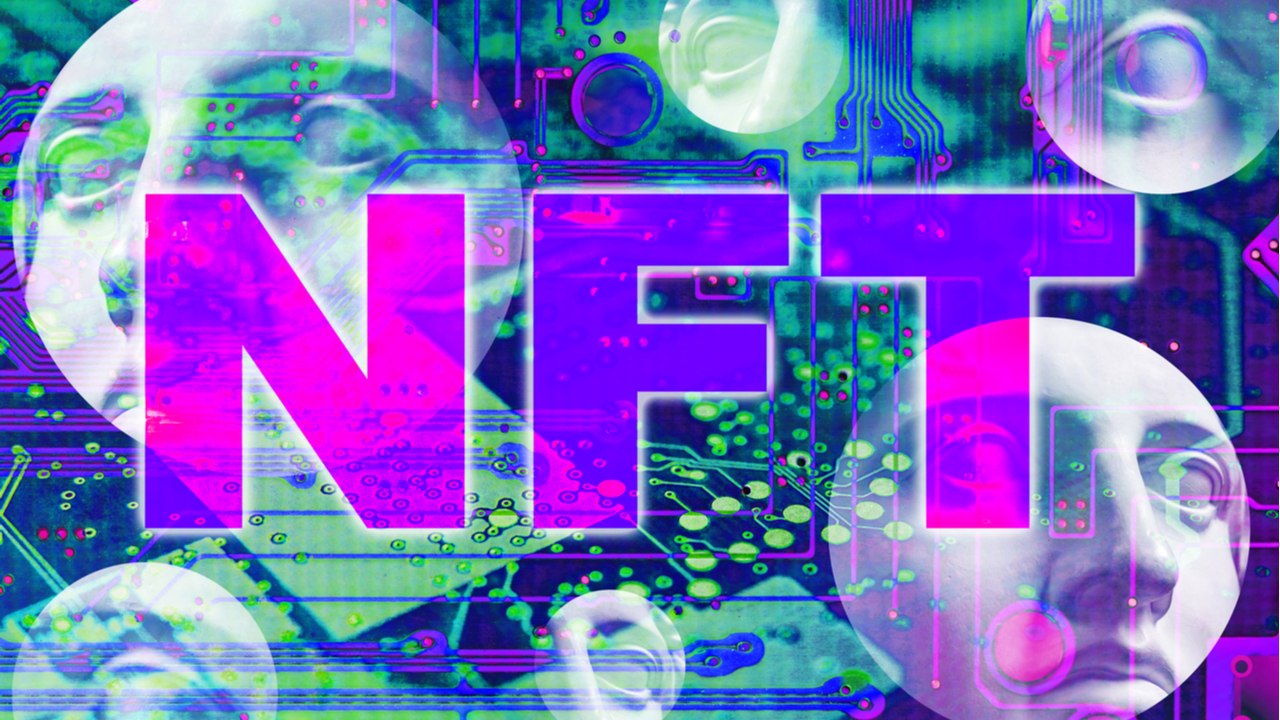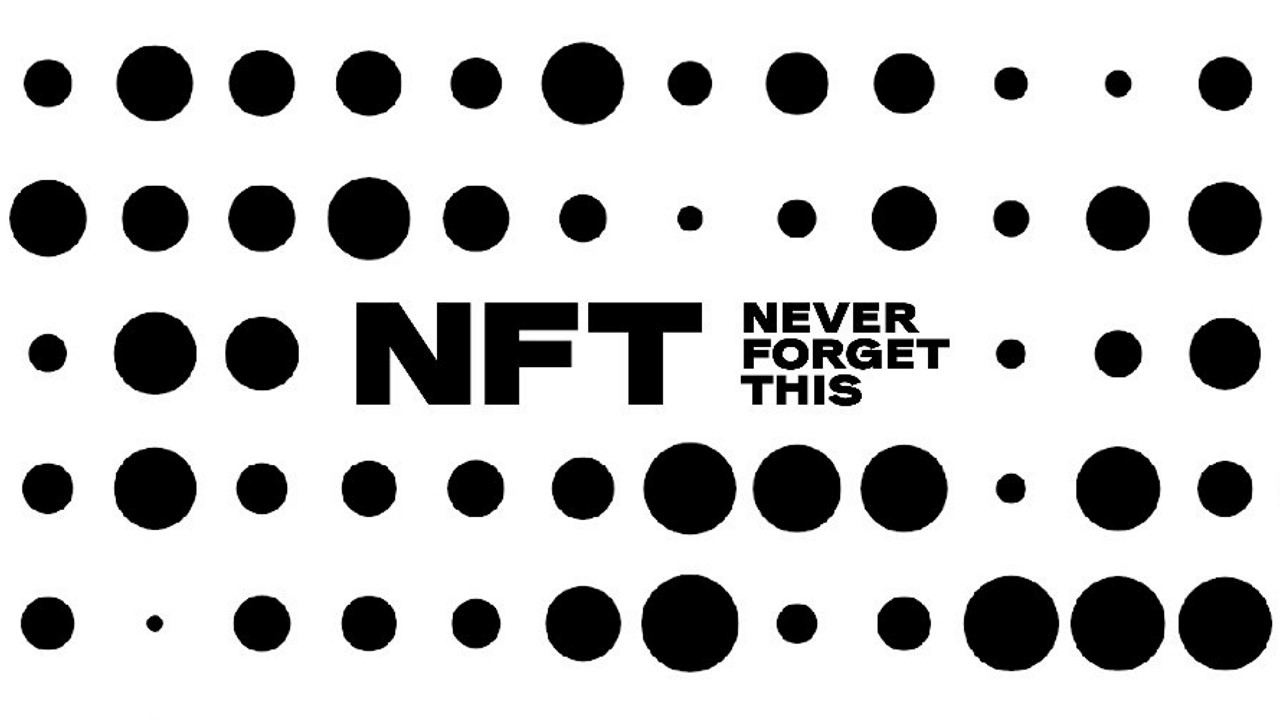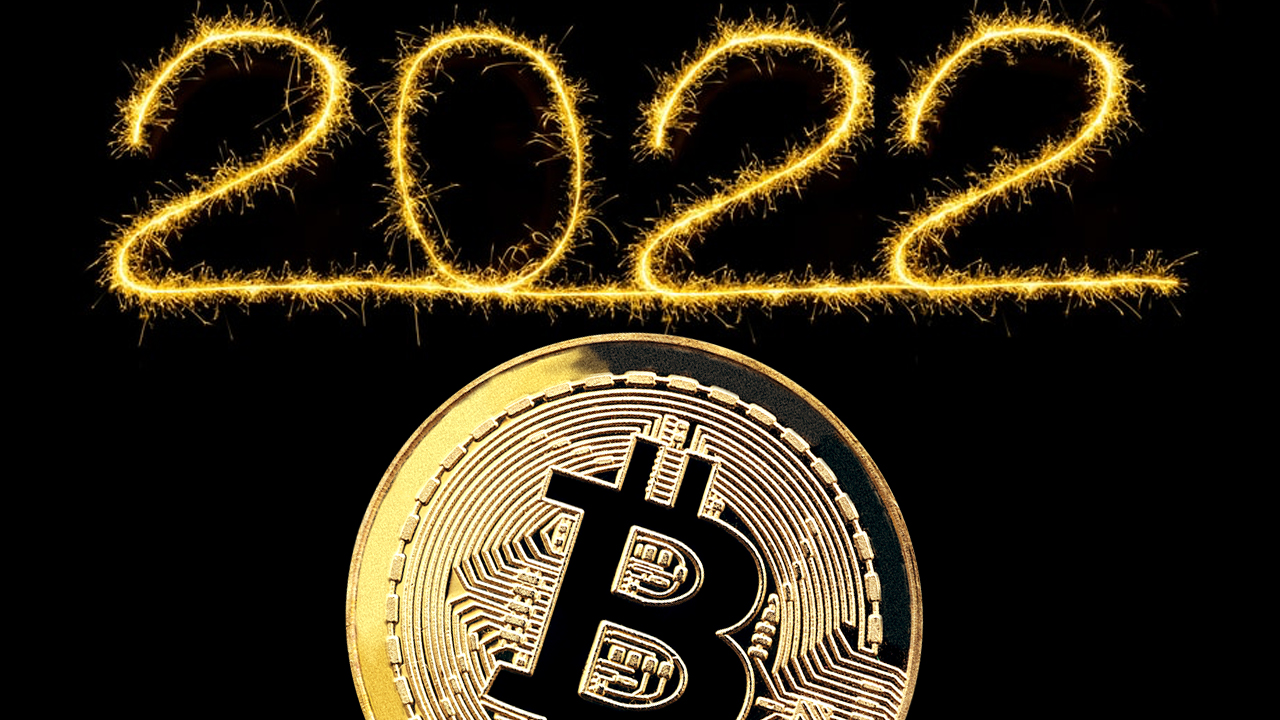 Seven days after the financial technology and bitcoin payments firm Zebedee announced it secured a $35 million capital raise, the company has revealed a new partnership deal with the mobile game studio Viker. The two companies have enhanced three classic video games with Zebedee’s bitcoin reward mechanics which include “Solitaire,” “Sudoku,” and the game “Missing […]
Seven days after the financial technology and bitcoin payments firm Zebedee announced it secured a $35 million capital raise, the company has revealed a new partnership deal with the mobile game studio Viker. The two companies have enhanced three classic video games with Zebedee’s bitcoin reward mechanics which include “Solitaire,” “Sudoku,” and the game “Missing […] A new report is predicting that the total value of the NFT market will reach $200 billion in 2030. The report, issued by Grand View Research, a multinational market insights company, found that the rising demand for this kind of instrument — due to its growing number of applications — will fuel growth of the […]
A new report is predicting that the total value of the NFT market will reach $200 billion in 2030. The report, issued by Grand View Research, a multinational market insights company, found that the rising demand for this kind of instrument — due to its growing number of applications — will fuel growth of the […] According to the international law firm Scott+Scott’s website, there’s a possibility that the non-fungible token (NFT) company Yuga Labs may be threatened with a class action lawsuit for generally promoting “the growth prospects and change for huge returns on investment to unsuspecting investors.” Law Firm Seeks Investors Who “Suffered Losses” From Yuga Labs Products The […]
According to the international law firm Scott+Scott’s website, there’s a possibility that the non-fungible token (NFT) company Yuga Labs may be threatened with a class action lawsuit for generally promoting “the growth prospects and change for huge returns on investment to unsuspecting investors.” Law Firm Seeks Investors Who “Suffered Losses” From Yuga Labs Products The […]
The biggest pain points in events ticketing could prove to be a flagship use case of blockchain-based nonfungible tokens, according to industry leaders.
The 2022 Champions League final will have a checkered position in the competition’s history book. Real Madrid emerged victorious over Liverpool inside the Stade de France, but the pandemonium outside the stadium before kick-off highlights the need for innovative solutions to events ticketing.
Counterfeit tickets played a massive role in the chaotic scenes that played out in the French capital in June 2022, as fans broke into the stadium precinct while authorities rebuffed many. French authorities estimated that 35,000 people had arrived at France’s national stadium with fake tickets or none at all, in addition to the 75,000 fans that had legitimate tickets for the grand final.
Black market ticket sales and touting have been part and parcel of the sporting and events world for decades, but the advent of blockchain-powered ticketing looks to be a promising solution. Nonfungible tokens (NFTs) are multi-faceted in that they ensure the credibility of tickets and enable Internet-of-Things (IoT) functionality while also serving as a unique digital collectible to commemorate an event.
The NFL has already tested the waters with NFT ticketing, having distributed around 250,000 NFT tickets after launch in November 2021. Fans that attended the NFL’s Super Bowl LVI were also eligible for commemorative NFT tickets — all at no cost. How that NFT ticket looks and what it incorporates are up to the creators. The NFL’s NFT tickets are minted on the Polygon blockchain and feature different animated visual elements.
The French envoy for the 2024 Paris Olympics has also suggested the use of NFT ticketing solutions to manage attendance for the events, as well as a trial run at the 2024 Rugby World Cup, which will also be hosted in the country.
NFTs are multi-faceted in that they ensure the credibility of tickets and enable IoT functionality while also serving as a unique digital collectible to commemorate an event. How that NFT ticket looks and what it incorporates are up to the creators. The NFL’s NFT tickets are minted on the Polygon blockchain and feature different animated visual elements.
Cointelegraph reached out to a handful of industry participants that already make use of blockchain-based NFT ticketing to gauge the impact of the technology.
Amsterdam-based event technology firm GET Protocol issues tickets that are minted as NFTs on the Polygon blockchain when a user buys a ticket in their mobile app. Tickets are tied to mobile numbers, which is a key part of eliminating ticket touting.
Related: There’s more to NFTs than just PFPs — 5 ways nonfungible tokens will transform society
Users can claim the actual NFT when they scan the ticket QR code at the given event, which links to their GET Protocol wallet. This is where digital collectibles and other exclusive benefits can be extended to users.
Colby Mort, who heads up NFT strategy at the company, told Cointelegraph that NFT tickets help add transparency to what is traditionally a “blackbox” industry. All tickets are transparently viewable in real time, which helps prove ticket authenticity, given the immutability of the underlying system
The secondary sale market is also formalized. Tickets can only be resold within the system, giving organizers control of tickets, revenue, data and direct contact with holders. Tickets are also given extended life cycles, both pre- and post-events, with GET Protocol exploring decentralized event financing for an upcoming Lewis Capaldi art show in Iceland. This explores fundraising initiatives with technology that could benefit smaller artists and creatives.
Digital collectibility is a major feature of post-event NFT utility but Mort also pointed to its potential as a community-building tool for artists and event hosts.
“NFT Ticketing for a lot of mainstream audiences is the 'light bulb moment' of understanding the underlying utility of an NFT combined with the familiarity of the collectible side of NFTs as all NFT Tickets can include a digital collectible.”
Josh Katz, CEO of NFT marketplace YellowHeart, told Cointelegraph the ticket industry is plagued by issues around authenticity and scalping which are mainly driven by the ease of forging or replicating paper tickets with modern hardware.
The finite element and exclusivity of tickets also results in mass reselling at inflated prices. Katz noted that the online ticketing market is expected to be valued at $68 billion by 2025, while secondary sales could generate $15 billion in sales of which organizers and artists forgo their rightful share:
“NFTs, on the other hand, can help solve most — if not all — of these issues. For one, the open and transparent nature of blockchains makes it extremely easy to verify the provenance and authenticity of NFT tickets, so it’s substantially harder for scammers to fool people.”
Kats also highlighted the freely programmable nature of the smart contracts powering NFTs, bringing dynamic benefits to holders and issuers. This also addresses secondary market sales, where NFTs can be programmed to deliver a percentage of sales to the artist or event organizer.
Mort insists that a focus on form and function has been important for their ticketing solution’s success to date. Ticket buyers use fiat currency to purchase tickets linked to bank accounts or cards and access and interact with their NFTs through an app.
“Since our inception in 2016, we've prioritised abstracting away the complexity of blockchain and NFT technology, but over the last year we've seen a huge demand from ticketing companies and event organisers to explore the Web3 side of their ticketing with post-event NFT claiming.”
GET Protocol was built to be blockchain agnostic, given that customers and clients will use the event and ticketing marketplace without having to understand the underlying technology.
Striking a balance that ensures ease of access for new users while harnessing the programmability, utility and immutability of blockchain technology is a key theme highlighted by both Mort and Katz in the adoption of NFT ticketing.
 The META HISTORY project team created Ukraine’s first NFT war museum one month after Russia’s full-scale invasion. Since then they have managed to raise $1,290,398 (803.28 ETH) for the Aid For Ukraine crypto fund, created by the Ukrainian Ministry of Digital Transformation together with the Ukrainian crypto platform KUNA and the blockchain company Everstake, and […]
The META HISTORY project team created Ukraine’s first NFT war museum one month after Russia’s full-scale invasion. Since then they have managed to raise $1,290,398 (803.28 ETH) for the Aid For Ukraine crypto fund, created by the Ukrainian Ministry of Digital Transformation together with the Ukrainian crypto platform KUNA and the blockchain company Everstake, and […] On July 13, the dedicated crypto price tracking, volume, and market capitalization web portal Coingecko published the company’s “Q2 2022 Cryptocurrency Report” which discusses the last quarter’s crypto market action and insights. The 46-page report explains how the Terra UST and LUNA fallout wreaked havoc on the entire crypto ecosystem and the stablecoin economy. Moreover, […]
On July 13, the dedicated crypto price tracking, volume, and market capitalization web portal Coingecko published the company’s “Q2 2022 Cryptocurrency Report” which discusses the last quarter’s crypto market action and insights. The 46-page report explains how the Terra UST and LUNA fallout wreaked havoc on the entire crypto ecosystem and the stablecoin economy. Moreover, […] China’s Tencent Holdings plans to shut down its non-fungible token (NFT) platform Huanhe only a year after its launch. The social media giant has reportedly made the decision because of the strict ban on the resale of NFTs imposed by the authorities in Beijing. Huanhe to Close Down a Year After Launch as China Curbs […]
China’s Tencent Holdings plans to shut down its non-fungible token (NFT) platform Huanhe only a year after its launch. The social media giant has reportedly made the decision because of the strict ban on the resale of NFTs imposed by the authorities in Beijing. Huanhe to Close Down a Year After Launch as China Curbs […]
“NFT[s] will not stop Russian missiles, but blockchain technology will contribute to the economic recovery and development of Ukraine,” said Alexander Borniakov.
The Ukrainian government will be using the proceeds of sales from an online nonfungible token, or NFT, museum to restore artwork in the real world.
According to a Friday announcement and information shared with Cointelegraph, Ukraine’s Ministry of Culture and Information Policy said the government's Meta History Museum of War platform, aimed at preserving the timeline of major events in Russia’s war with Ukraine, raised 803.28 Ether (ETH) — roughly $1.3 million at the time — through NFT sales. The ministry said proceeds from the sales will go toward “the restoration of Ukrainian cultural institutions,” many of which have been damaged or destroyed by missile attacks from Russia.
"During the six months of the war in Ukraine, the Russians destroyed hundreds of our museums, theaters and cultural institutions,” said Oleksandr Tkachenko, Ukraine’s Minister of Culture and Information Policy. “Ukrainian culture and national heritage have been damaged by almost 6 billion euros, and judging by the actions and intentions of the Russian Federation, this figure will only increase.”
Alexander Borniakov, deputy minister of Digital Transformation of Ukraine for Information Technology Development, added:
“NFT[s] will not stop Russian missiles, but blockchain technology will contribute to the economic recovery and development of Ukraine as an innovation-friendly country.”
We wish it was the last drop of NFT artworks, but Russia continues to destroy our homeland
— Meta History: Museum of War (@Meta_History_UA) July 22, 2022
Therefore we represent the 3rd drop of the artworks dedicated to events between March 15 - 31. It includes masterpieces created by Maria Oz, Anton Abo, Oleksii Dyvysenko and the others. pic.twitter.com/T43keVzVgL
The Ukrainian government launched the Meta History project in March, one month after the first missiles struck Ukrainian targets in the ongoing conflict. While the $1.3 million will go toward Aid For Ukraine — a platform launched by the government that accepts crypto donations “to support people in their fight for freedom” — the Ministry of Culture and Information Policy has said the funds will be used for restoration rather than supplies for the nation’s military.
UNESCO, the agency behind many of the world’s heritage sites based on their significance to history, nature and art, reported that as of Monday, 164 cultural sites in Ukraine had been partially damaged or destroyed as a result of the war with Russia. These include 72 religious sites, 12 museums, 32 historic buildings, 24 buildings for cultural activities, 17 monuments and seven libraries.
“These repeated attacks on Ukrainian cultural sites must stop,” said UNESCO director-general Audrey Azoulay in June. “Cultural heritage, in all its forms, should not be targeted under any circumstances.”
Related: Ukraine-based blockchain firm announces ‘we’re still hiring’ amid market downturn, war
Since the beginning of the war with Russia in February, Ukraine’s government has raised more than $100 million in crypto donations sent directly to wallet addresses provided by the Ministry of Digital Transformation. According to Aid For Ukraine, crypto donations go toward supplying the country's military as well as humanitarian aid.
 On July 20, 2022, Mojang Studios the Swedish video game developer behind the world’s best-selling game of all time said blockchain or non-fungible token (NFT) technologies are “not permitted to be integrated inside [Mojang’s] client and server applications.” Mojang stressed that NFTs or any use of blockchain tech cannot be integrated into any “in-game content […]
On July 20, 2022, Mojang Studios the Swedish video game developer behind the world’s best-selling game of all time said blockchain or non-fungible token (NFT) technologies are “not permitted to be integrated inside [Mojang’s] client and server applications.” Mojang stressed that NFTs or any use of blockchain tech cannot be integrated into any “in-game content […]